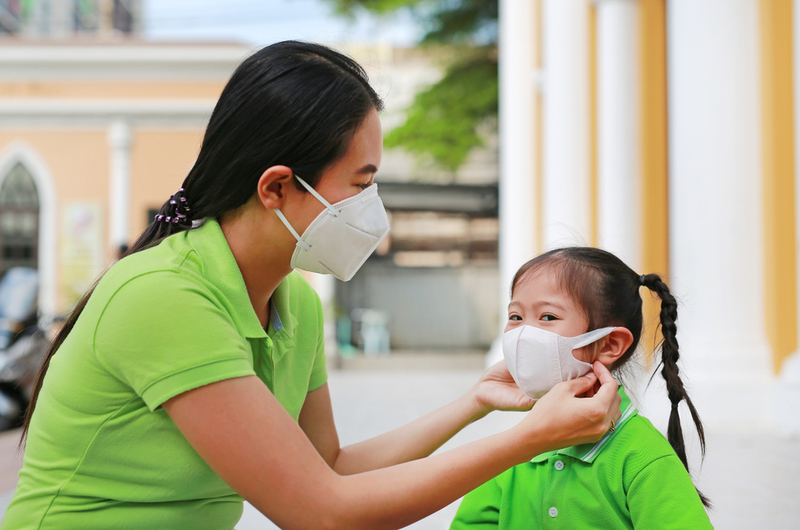Coronavirus outbreak in China puts Indian states on alert: Six things to know
Partner Content Jan 20, 2020
China’s Wuhan city reported an outbreak of a new strain of coronavirus, which causes respiratory problems. Here are six things to know about the novel strain of coronavirus.
 On January 9, the World Health Organisation (WHO) confirmed the outbreak of a new strain of coronavirus called ‘novel coronavirus’ or ‘2019-nCoV’ in a person with pneumonia in China’s Wuhan city in Hubei Province. Following this, the global health body encouraged all countries to “continue preparedness activities” to tackle the spread of the virus, which causes respiratory problems. Countries have been asked to enhance their surveillance for severe acute respiratory infections (SARI) and unusual patterns of SARI or pneumonia cases.
On January 9, the World Health Organisation (WHO) confirmed the outbreak of a new strain of coronavirus called ‘novel coronavirus’ or ‘2019-nCoV’ in a person with pneumonia in China’s Wuhan city in Hubei Province. Following this, the global health body encouraged all countries to “continue preparedness activities” to tackle the spread of the virus, which causes respiratory problems. Countries have been asked to enhance their surveillance for severe acute respiratory infections (SARI) and unusual patterns of SARI or pneumonia cases.
Health departments in several countries, including India and the United States of America, soon started screening passengers arriving from China at their airports. As part of the screening at San Francisco, Los Angeles and New York airports, the temperature of the passengers were recorded and they had to fill out a form, including furnishing their contact details.
In India, the Union Ministry issued a travel advisory on January 17, asking its citizens to follow certain precautionary measures while traveling to China. There are about 55,500 Indians residing in China, according to the Ministry of External Affairs' (MEA) 2018 report. The Ministry has advised screening of travelers from China at Delhi, Mumbai, Kolkata and Tamil Nadu airports using thermal scanners.
Travelers to China have been asked to avoid traveling to farms, live animal markets or slaughter houses, to refrain from consuming raw or uncooked meat, and also to avoid close contact with people who are unwell or are showing symptoms such as cough and runny nose.
Here are six things to know about this virus:
The outbreak
On December 31 last year, China apprised WHO of a cluster of pneumonia cases in Wuhan due to an unknown cause. Incidentally, many of the patients were suffering from respiratory illness, including pneumonia, since early December.
On preliminary epidemiological investigation, it was found that most patients had come in close contact with animals and frequently visited a wholesale seafood market in the city. Chinese authorities identified this market as the centre of the outbreak. This market has been closed since January 1.
Imported cases of the virus
On January 13, Thailand reported the first imported case of 2019-nCoV. According to WHO, a 61-year-old Chinese woman living in Wuhan City, developed fever with chills, sore throat and headache on January 5. Three days later, she took a flight to Thailand along with 16 other members. At the Thailand airport, her febrile illness or fever was detected through thermal surveillance. Preliminary investigation of her exposure indicated that prior to the onset of the illness, she had regularly visited a local fish market, although not the seafood market from where most of the cases were detected.
On 15 January 2020, Japan confirmed an imported case of 2019-nCoV, although the patient contracted a small amount of the virus. The case-patient, a male, traveled to Wuhan in late December and developed a fever on January 3 during his stay there. Although he did not visit the seafood market or any slaughterhouse, he indicated that he was in close contact with a person with pneumonia.
The ‘mysterious virus’
Coronaviruses are a large family of viruses known to cause various illnesses, including the common cold and even severe diseases such as Middle East Respiratory Syndrome (MERS) and Severe Acute Respiratory Syndrome (SARS). Novel coronavirus (nCoV) is a new strain of coronavirus, which, WHO says, has not been previously identified in human beings.
As of January 18, as many as 50 confirmed cases of infection with the novel coronavirus were reported. Of these cases, two people with severe underlying medical conditions died.
Symptoms
According to WHO, common signs of the virus infection include respiratory symptoms, fever, cough, shortness of breath and breathing difficulties. In more severe cases, the infection can lead to pneumonia, severe acute respiratory syndrome, kidney failure and even death.
Treatment
WHO stressed that no definitive conclusions can be drawn about how the novel coronavirus is transmitted, its clinical features, or the extent to which the infection has spread.
Hence, there is no vaccine or specific treatment for the novel coronavirus yet. The treatment is based on the patient's clinical conditions.
Advisory
WHO does not recommend any specific health measures for travelers. However, it has issued certain tips to those traveling to and residing in China.
- Clean hands with soap and water or alcohol-based handrub after coughing or sneezing or when caring for the sick.
- Cover nose and mouth when coughing and sneezing with tissue or flexed elbow. Throw the used tissue into a closed bin immediately after use.
- Avoid close contact with anyone with cold or flu like symptoms
- Thoroughly cook meat and eggs
- No unprotected contact with live wild or farm animals
This story was originally published on The News Minute and is reprinted here with permission. It can be viewed here.
-
Exclusive Write-ups & Webinars by KOLs
-
Daily Quiz by specialty
-
Paid Market Research Surveys
-
Case discussions, News & Journals' summaries